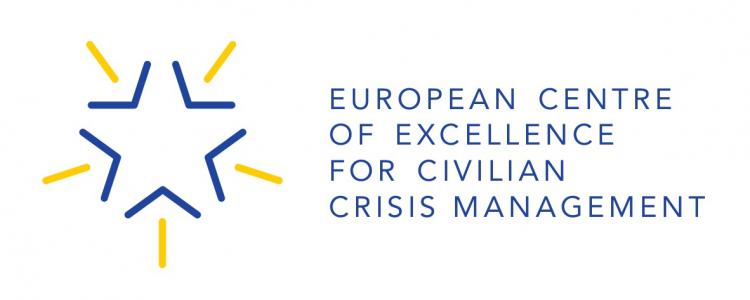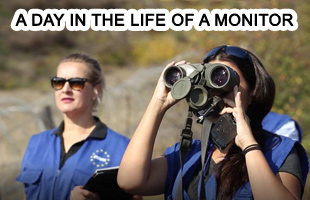“All crises in our neighbourhood have one thing in common: lasting solutions cannot be found through military means alone. Europe must become stronger in the sphere of civilian crisis management, as the centrepiece of the (EU) Common Security and Defence Policy,” declared Heiko Maas, German Foreign Minister, at the opening 17 September. “To this end the European Centre of Excellence (…) in Berlin will be a flagship as well as “do-tank”.

In her video greeting EEAS Secretary General Helga Schmid, warmly welcomed the German initiative to establish the Centre and looks forward to the CoE taking shape thanks to the strong support by the 18 EU Member States who so far have joined the Centre. She reminded that through the capacity building, advising and monitoring activities of the currently 11 civilian CSDP Mission the EU contributes to increasing overall security, strengthening local rule of law capacities and assisting partners in their security sector reform.
Analysing and proposing tailored solutions
Established in February 2020 the Centre will gather, analyse and share national good practices in the field of civilian crisis management. Based on this knowledge, the Centre of Excellence will propose tailored solutions and expert advice to Member States, EU Institutions and EU CSDP Missions.
“ The timing of the setting up of the Berlin Centre could not be better as we are at a juncture, looking back to some 17 years of civilian CSDP in operation”, states Birgit Loeser, acting Civilian Operations Commander, who herself took already 2002 part in the planning efforts to set up the very first missions in North Macedonia, Bosnia-Herzegovina and later the Democratic Republic of Congo. ” The Compact to strengthen civilian CSDP, agreed by Member States in November 2018, has now brought a renewed impetus to further develop civilian CSDP.”
Diverse and equal teams lead to better and more sustainable results: improving the gender balance in civilian CSDP Missions
As outlined by the Secretary General in her video greeting diverse and equal teams lead to better and more sustainable results. This is a message that the EU passes to its partners, but where we also have to lead by example. “ One of the Member States’ commitments is to achieve a proper gender balance among the personnel of civilian CSDP Missions. This is a commitment that we must pursue in earnest.” Birgit Loeser reminds. The proportion of women in civilian CSDP Missions stands currently at around 25 percent. With a share of 29 percent, Germany in the middle of the field. Sweden with 39 percent and Finland with 42 percent perform better. Reflecting this reality, the Berlin Centre chose the improvement of women’s participation in civilian crisis management missions to be the topic of its’ first (virtual) workshop, which took place Wednesday 16 September.
Background: The EU deploys currently 11 civilian CSDP Missions in Africa, the Middle East and the wider European neighbourhood. Together they employ around 2,000 staff – EU citizens and host state nationals. The first civilian CSDP Mission, the EU Police Mission in Bosnia Hercegovina, was deployed in 2003. The latest civilian CSDP Mission is the EU Advisory Mission for the Central African Republic which deployed this summer to Bangui to advise the Central African government in the reform of its security sector. Established in 2007, the Civilian Planning and Conduct Capability (CPCC), an EEAS Directorate, is the operational headquarters of the civilian CSDP Missions. The Director of the CPCC acts as the Civilian Operations Commander.
Further information on the civilian CSDP Missions and the Centre of Excellence
View the original press release here.


